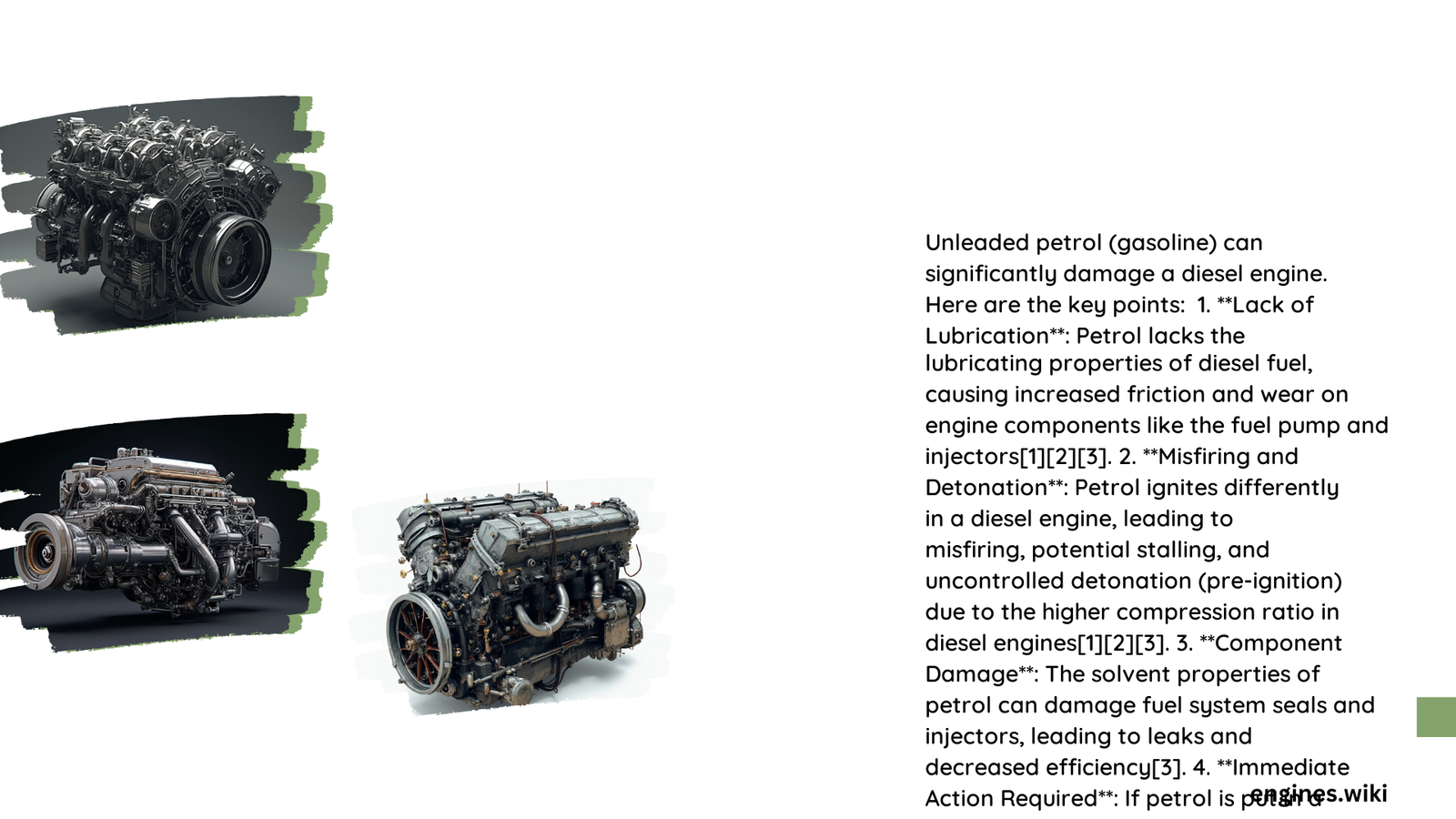Accidentally introducing unleaded gasoline into a diesel engine can trigger catastrophic mechanical failures. The fundamental chemical and physical differences between gasoline and diesel fuel create a perfect storm of potential destruction, potentially leading to immediate performance issues, permanent fuel system damage, and costly repairs. Understanding these risks is crucial for vehicle owners to prevent unintended engine compromise and maintain optimal vehicle performance.
What Happens When Unleaded Fuel Enters a Diesel Engine?
Diesel engines operate on fundamentally different combustion principles compared to gasoline engines. The introduction of unleaded fuel can cause immediate and long-term mechanical complications that extend far beyond simple performance reduction.
How Do Chemical Properties Trigger Damage?
| Fuel Property | Diesel Requirement | Gasoline Characteristics | Potential Damage |
|---|---|---|---|
| Ignition Method | Compression-based | Spark-based | Pre-ignition risk |
| Lubrication | High lubricity | Low lubricity | Fuel system wear |
| Cetane Number | 40-55 | Low rating | Improper combustion |
What Specific Components Face Immediate Risk?
Key diesel engine components vulnerable to unleaded fuel contamination include:
- Fuel Injectors: Rapid wear due to insufficient lubrication
- Fuel Pump: Potential complete failure
- Rubber Seals: Degradation and potential leakage
- Internal Engine Mechanisms: Risk of mechanical stress and potential structural damage
Can Small Amounts of Unleaded Fuel Cause Significant Problems?
Even minimal unleaded fuel contamination can trigger substantial issues:
- Immediate performance degradation
- Increased exhaust emissions
- Potential complete engine failure
- Costly repair requirements
What Are the Long-Term Consequences?
Persistent unleaded fuel exposure can result in:
- Permanent fuel system component destruction
- Reduced engine efficiency
- Potential complete engine replacement
- Voided manufacturer warranties
How Quickly Can Damage Occur?
The timeline for diesel engine damage varies based on several factors:
- Fuel mixture concentration
- Engine age and model
- Immediate corrective actions taken
Critical Warning: Continuing to operate a diesel engine after unleaded fuel introduction can exponentially increase potential damage.
Recommended Immediate Actions
If unleaded fuel is accidentally introduced:
- Do not start the engine
- Contact professional diesel mechanics
- Arrange for complete fuel system drainage
- Consider comprehensive diagnostic evaluation
Technical Mitigation Strategies

Preventing unleaded fuel contamination requires:
- Clear fuel pump labeling
- Driver education
- Careful refueling practices
- Regular maintenance checks
Conclusion
Unleaded fuel represents a significant threat to diesel engine integrity. The complex mechanical interactions between incompatible fuel types demand immediate professional intervention and preventative strategies.
